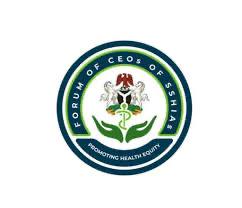The World Health Organization (WHO) has announced plans for up to 25 countries to incorporate malaria vaccines into their childhood immunization programs by the end of 2025.
WHO Director-General Tedros Ghebreyesus provided this update on Monday during an online media briefing on global health issues. He emphasized that these vaccines have the potential to save tens of thousands of young lives each year.
However, Ghebreyesus expressed concerns over the potential risks posed by recent reductions in US funding for global health initiatives.
“Many of the gains in malaria control achieved over the past two decades are now at risk due to these funding cuts,” he cautioned.
While refraining from commenting on the US withdrawal from WHO, he clarified that the funding cuts he referenced specifically pertain to direct US financial contributions, including support provided through agencies such as USAID and the US Centers for Disease Control and Prevention (CDC).
According to Ghebreyesus, these funding reductions have already led to significant disruptions in the supply of malaria diagnostics, medicines, and insecticide-treated nets, with stock shortages and delivery delays.
“The US has been the largest bilateral donor in the fight against malaria for the past 20 years, preventing an estimated 2.2 billion cases and 12.7 million deaths,” he noted.
If these disruptions persist, he warned, an additional 15 million malaria cases and 107,000 deaths could occur this year alone, potentially undoing 15 years of progress.
A similar crisis is emerging in the fight against HIV, with the suspension of most funding for the President’s Emergency Plan for AIDS Relief (PEPFAR). This has halted HIV treatment, testing, and prevention services in over 50 countries.
Ghebreyesus reported that eight countries are already experiencing severe disruptions to antiretroviral therapy, with some at risk of running out of essential medications in the coming months. This could result in more than 10 million new HIV cases and three million HIV-related deaths.
The WHO chief also highlighted the impact on tuberculosis (TB) programs, with 27 countries across Africa and Asia experiencing critical shortages of healthcare workers, diagnostic tools, and functional data systems.
Nine countries have already reported procurement and supply chain issues affecting TB medications, putting countless lives at risk.
“Over the last two decades, US support for TB services has saved nearly 80 million lives, but this progress is now under threat,” Ghebreyesus said.
Additionally, he noted that the WHO’s Global Measles and Rubella Network, which is solely funded by the US, faces an imminent shutdown, even as measles outbreaks are rising worldwide. In 2024 alone, 57 major or disruptive measles outbreaks were reported, continuing an alarming trend from the past three years.
He further warned that funding cuts are also impacting efforts to eradicate polio, monitor emerging diseases like avian influenza, and respond to disease outbreaks and humanitarian crises. As a result, nearly 24 million people in crisis-affected regions may lose access to essential health services.
Ghebreyesus urged other donors to step in to bridge the funding gap while encouraging affected countries to increase their domestic health spending to sustain progress in disease control and healthcare services.







